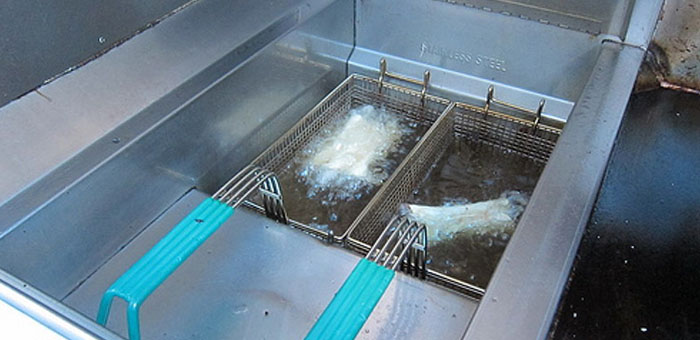Stability and oxidation aren’t just terms you might have last heard in your high school chemistry class. They’re also important concepts you should know when buying oil for the fryer in your food truck. Because of the importance of this concept when it comes to your bottom line we’ll share some tips and information on fryer oil with you.
Fryer Oil And Your Food Truck
What defines good fryer oil?
Better performing oil is one that can stand up to the high heat generated during the frying process and able to minimize the speed at which it breaks down. Trans-fat-free oils are more expensive for a food truck owner but there’s been a lot of work by seed companies to breed oil seeds that can stand up to high-heat environments and still maintain their nutritional quality.
The most important aspect from a frying perspective is oxidant stability (the ability to hold up under high-heat conditions). When you choose oil that doesn’t have enough oxidant stability, you may encounter problems, such as varnish all over the sides of your equipment. This happens because of oxidation and is very difficult to clean up. This can also cause “off” flavors to develop in the food cooked in this oil.
Does the price of oil mean relate to its performance?
It can, but if you buy the best oil on the market, and do nothing to take care of it, it’s going to act like the cheapest oil on the market. If you buy less expensive oil and take care of it every day by filtering and putting fresh oil into the pot every time you need it, that oil’s going to last longer.
In general terms, you may pay a little bit more for more stable, non-hydrogenated oil but in the long run; you’ll see cost savings just because it can last much longer.
How does oil choice affect a fryer’s performance?
New, higher-stability oils don’t have as many particulates. They don’t oxidize as quickly so they don’t have as much buildup. This in turn requires less maintenance on the fryer itself. Everything you do in the fryer reacts with the whole machine. If you don’t filter the oil a lot, then eventually; it’s going to build up around the heating element so it’s not going to heat correctly.
How does temperature affect fryer oil?
After rush where there is a lot of high-volume frying, you should turn down the oil temperature; a lot of oxidation happens during that period if you’re not constantly frying. For every 10 degree increase in the fryer temperature, there is a concurrent increase in the breakdown of the oil, moving it to its endpoint. So tight temperature controls will extend your oil’s life.
RELATED: Don’t Give Your Waste Oil Away
If you have any additional recommendations please feel free to share them in the comment section or social media. Facebook | Twitter




